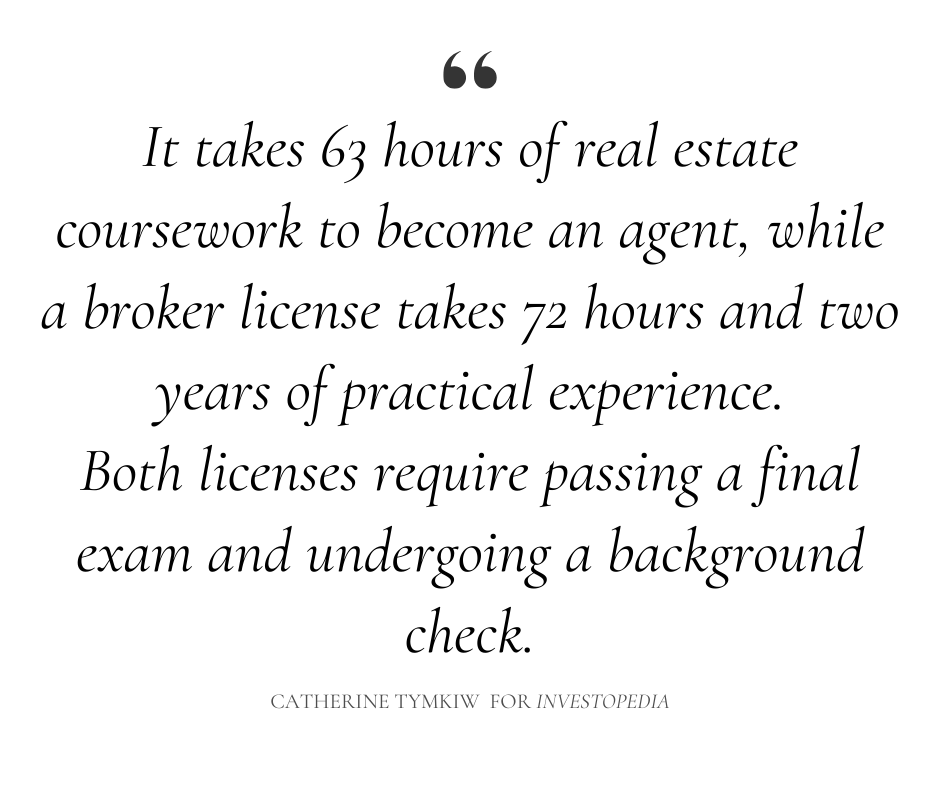

Selling in the Sunshine State: Get Your Florida Real Estate License!
Summary
If you’re a woman in Florida seeking a flexible and fulfilling career path, consider getting your real estate license! You’ll be able to set your own hours, build a business that reflects your interests, and tap into the exciting Florida real estate market for both personal and financial success. You’ll need 63 hours of coursework, a background check, and a license application to make it in the Sunshine State!
Reflection Questions
Journal Prompt
Imagine controlling your own schedule, setting your own hours, and directly reaping the rewards of your hard work. Consider a real estate career in the Sunshine State! The Florida real estate market is dynamic and exciting, allowing you to tap into a vibrant network of clients and build a business tailored to your specific interests. Whether you’re raising a family, seeking a career change, or just craving greater independence, Florida real estate could open doors to unlimited potential and the chance to achieve both financial success and personal satisfaction. Ready to apply for a real estate license? Florida has different rules and requirements than other states in the U.S.
Understanding Requirements Set by the Florida Real Estate Commission
Age and Education Requirements


In the Sunshine State, the minimum age requirement to apply for a real estate license and become a Florida real estate agent is 18 years. Prospective agents must also meet educational qualifications, which include the completion of a 63-hour pre-licensing course from an accredited institution.
You might also need a high school diploma in order to obtain a real estate agent license. The pre-license course covers fundamental principles and practices you’ll need to sell real estate as a sales associate in Florida, preparing candidates for the state exam and their future careers.
Background Check and Fingerprints
As part of the licensing process, applicants are required to undergo a thorough background check, which includes submitting fingerprints. These fingerprints must be submitted electronically through a service provider approved by the Florida Department of Law Enforcement (FDLE). The purpose of the background check is to identify any criminal history that might disqualify a candidate from obtaining a real estate license in the state.
Residency and Citizenship Requirements


To be eligible for a real estate license in Florida, applicants do not need to be U.S. citizens, but they must provide proof of legal presence and authorization to work in the United States. Additionally, there is no residency requirement in Florida for obtaining a real estate license, making it accessible to residents and non-residents who comply with all other stipulations. This inclusivity helps attract a diverse pool of applicants to the Florida real estate market. Plus, according to Catherine Tymkiw in an article for Investopedia, “Florida has reciprocity agreements with 10 states.”
Educational Pathways for Pursuing a Florida Real Estate License


To meet the educational requirements set by the Florida Real Estate Commission, prospective agents must complete a 63-hour pre-licensing course from an accredited institution. These courses are available through a variety of approved schools and can be taken online or in person, offering flexibility to suit different learning preferences and schedules.
The coursework includes key topics such as property rights, real estate law, contracts, financing, and the principles of real estate practice, providing a solid foundation for a career in real estate.
Completing the Pre-License Course


The 63-hour pre-licensing course requires a significant time commitment, which can typically be completed within a few weeks if pursued full-time, or over several months if taken part-time. Success in these courses often depends on consistent study habits and active participation.
Candidates can enhance their learning by engaging with supplemental materials, forming study groups, and taking practice exams to familiarize themselves with the format and content of the state licensing exam. These strategies not only prepare students for the exam but also instill a deeper understanding of the course content, facilitating a smoother transition into their real estate careers.
Passing the Florida Real Estate Exam


Candidates must register for the Florida Real Estate Exam through the designated testing provider, Pearson VUE. The process involves scheduling an appointment online or by phone, and the examination fee is required at the time of registration. The cost of the exam varies, but it generally includes a fee for both the application and the exam itself.
Preparing for the Exam
Effective preparation is crucial for success on the Florida Real Estate Exam. Candidates should focus on comprehensive study guides, take multiple practice tests, and perhaps enroll in exam prep courses if needed. Recommended materials include the latest editions of Florida real estate textbooks and online resources that mimic the exam format.
Taking the Exam
On exam day, candidates should arrive at the testing center early, bringing necessary identifications and confirmation numbers. The exam itself consists of multiple-choice questions that test a wide range of knowledge, including laws, principles, practices, and calculations relevant to real estate in Florida.
After the Exam
To pass the Florida Real Estate Exam and launch their real estate career, a candidate must score at least 75%. If unsuccessful, candidates can retake the exam after 24 hours for computer-based tests, but must wait 30 days for a third or subsequent attempt, and they are responsible for additional fees each time.
Applying for Your License After Passing the Exam


After passing the exam, business and professional regulation dictates that candidates must submit their sales associate license application to the Florida Real Estate Commission. The process includes filling out an application form, paying associated fees, and providing required documents such as proof of completed education and passing exam scores.
For those in the real estate industry, the application process includes a background check, where the candidate’s fingerprints are reviewed by law enforcement agencies to ensure there are no disqualifying criminal records. Once the application and background checks are successfully processed, the candidate will receive their Florida Real Estate License, either by mail or electronically, depending on the method chosen during the application process.
Post-Licensing Requirements
New real estate professionals are required to complete post-licensing education within their first renewal period, which includes additional hours of specialized training. This is also an opportunity to pursue further certifications and specialties to enhance expertise and marketability.
Whether you are a real estate broker or a part-time agent, Florida real estate licenses must be renewed every two years. This involves completing continuing education courses before the renewal deadline. Failure to meet these requirements can result in the suspension of the license.
Final Thoughts: Tips for Launching Your Real Estate Career in Florida


New agents should actively engage in networking by joining real estate associations, attending local and state networking events, and connecting with other professionals in the field to build relationships and referrals. Effective marketing strategies include a combination of digital tactics such as social media advertising and email marketing, alongside traditional methods like direct mail and community engagement.
Choosing the right broker to work with is critical for a new agent’s success. Real estate agents should look for a broker with a strong training program and supportive culture, and be prepared to learn extensively in your first year as you build your client base and reputation.
We wish you the best of luck as you pursue your career as a Florida real estate agent!








